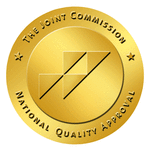How do you know that it’s been successful? The goal of alcohol rehabilitation is to help individuals overcome their drinking problems and go through the rest of their lives functioning well without alcohol. So, alcohol rehabilitation is considered to be successful if a person is able to leave the program and stay sober. But what can you expect? And how can you increases chances for success? More here, with a section at the end for your questions.
Alcohol rehabilitation process and procedures
While not every alcohol rehabilitation program is exactly the same, the majority of them treat alcoholism in roughly the same manner. For instance, most alcohol rehab programs tackle this addiction in a few distinct steps, which are listed below.
1. Assessment of the drinking problem
Assessment of an alcohol problem usually consists of a scripted interview and a drug test. An initial assessment of an alcoholic by an addiction specialist serves a few important purposes. First of all, it helps a specialist understand more about the drinker’s habits and drinking. It might also help uncover underlying mental or emotional issues that may be contributing to their alcohol use. Additionally, assessment can be used as a baseline measure for treatment success. And ultimately, this evaluation will be used to create an individual treatment and recovery plan.
2. Medical detox or withdrawal from alcohol
The detox stage of alcohol rehabilitation is often one of the most difficult for many serious alcoholics. During detox, the body is trying to adjust to functioning without alcohol as well as get rid of any remaining alcohol in the system. This typically results in severely uncomfortable withdrawal symptoms, including:
- anxiety
- depression
- headaches
- irritability
- nausea
- shakiness vomiting
All cases of alcohol withdrawal need to be medically supervised. This is because severe symptoms (which include seizures) can manifest unexpectedly, especially in cases of chronic drinking, or high volume alcohol intake. A recovering alcoholic might go through detox in a dedicated detox facility or in a clinic which is attached to an alcohol rehabilitation center. Medical supervision is notably advised in cases of severe drinking or in those who have already experienced symptoms of delirium tremens and/or seizures during alcohol detox.
3. Alcoholism treatment
The treatment that a recovering alcoholic will receive while in alcohol rehabilitation will usually vary, depending on his or her individual situation. Frequent therapy and counseling sessions, however, are common treatment methods in any alcohol rehabilitation program. Some recovering alcoholics may also respond well to medications such as acamprosate, disulfiram, or naltrexone. Antidepressants or anti-anxiety medications may also be prescribed. However, a combination of pharmaceutical and behavioral interventions is most frequently advised and results in best cases of successful treatment.
4. The aftercare program
Alcoholism is a very powerful addiction and difficult to overcome. In order to maintain a sober lifestyle, many recovering alcoholics find that they need some sort of aftercare for several months or years after they complete an initial alcohol rehabilitation program. In fact, many consider themselves to still be “in recovery” for the rest of their lives. Aftercare can include counseling, support group attendance, outpatient rehab attendance, mentoring, coaching, alternative modalities, or living in a halfway or 3/4 way house. A good alcohol rehabilitation program will also be able to refer you to life skills training programs and/or social services when needed. Finally, be sure to have an aftercare relapse prevention plan IN HAND when you leave a rehab program. This is a MUST HAVE for anyone wanting to maintain a sober lifestyle.
Is alcohol rehabilitation successful?
In order for alcohol rehabilitation to be successful, individuals must stay in treatment and dedicate themselves to recovery. They must have motivation to stop drinking and be willing to admit to admit their problem and make an effort to change. A strong support system of non-drinking family and friends will also help individuals to stay in alcohol rehabilitation.
A person is more likely to successfully complete an alcohol rehabilitation program if he or she is following an addiction treatment plan that is based on their individual wants and needs. These care plans are usually created by addiction specialists based on an assessment as well as the input of the alcoholic.
Is alcohol rehabilitation effective?
Overall, alcohol rehabilitation is very effective. According to one study, alcohol related problems caused individuals in the United States over $100 billion dollars in one year. This included costs such as health, legal, and career problems. The cost for alcohol rehabilitation, on the other hand, was only a fraction of this. Even harm reduction strategies, an alternative to abstinence, can effectively reduce the costs associated with an alcohol problem.
There are a number of steps that recovering alcoholic can take to make alcohol rehabilitation more effective for them personally. For instance, opting to start treatment in an intensive residential alcohol rehabilitation center often helps make alcohol rehabilitation much more effective. After the intense treatment is complete, they can then be placed in a less intense treatment program on an outpatient basis. However, for alcohol rehabilitation to be completely effective, a person must be ready and willing to change.
Questions about alcohol rehabilitation?
Please leave us your questions about rehabilitation in the comments section just below. We’ll do our best to respond to you personally and promptly.


 RSS Feed
RSS Feed
